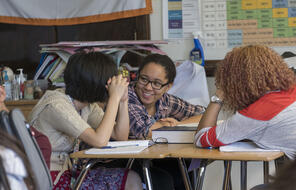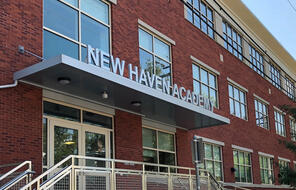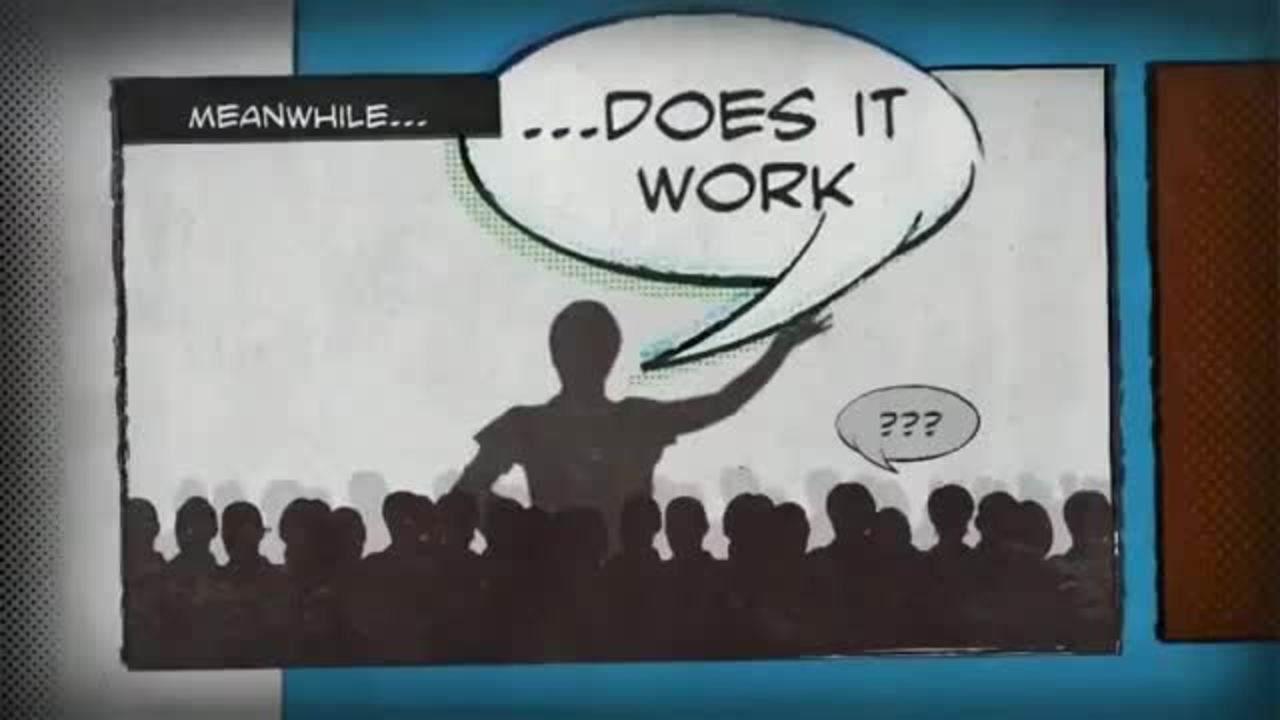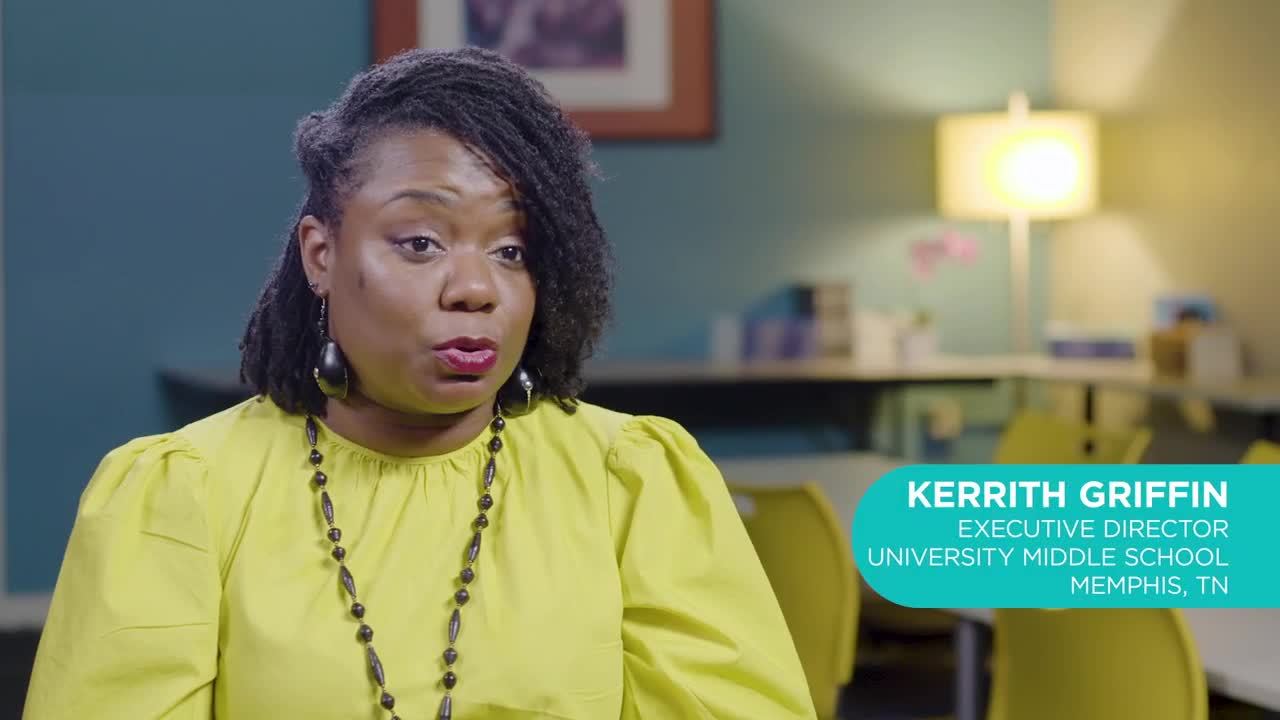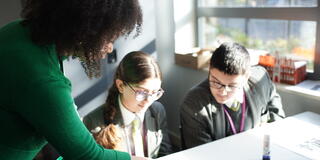
See Our Impact
At Facing History, we are dedicated to teaching and learning. We want to know what's working, and what we can improve. We want our experiences to inform our future.
For more than 40 years, we have used data and reflection to create an evidence-based approach. And we are proud to report that our approach works.
Randomized controlled trials have proven that Facing History transforms students, teachers, classrooms, and schools. Our programs and resources improve:
- academic achievement
- social-emotional learning
- civic engagement
- classroom culture and more.
Inspiring Academic Engagement
Teaching Facing History increases classroom engagement and improves students’ reasoning and analytical skills.
-
91% of teachers who taught an elective Facing History course agreed that it promoted their students’ abilities to ground reading, writing, and speaking in evidence from text.
-
Students in a Facing History classroom were 94% more likely than their peers to report that the class motivated them to learn.
Hear from educators and students.
Explore
ESSA Approved
Adopted in 2015, the Every Student Succeeds Act (ESSA) outlines the current standards for K-12 education in the United States. With an emphasis on promoting high-impact, evidence-based educational practices, “Evidence for ESSA” has identified Facing History as one of only a handful of programs that meet the rigorous ESSA standards for social-emotional learning in middle and high schools.
Fostering Civic Participation
Students from Facing History classrooms report feeling a stronger motivation to become active civic participants. Students feel that our curriculum guides them toward a better understanding of themselves, as well as the academic content.. Our resources help students learn that their life choices can directly contribute to making the world a better place.
-
93% of Facing History students agreed that it is important to work for positive social change.
-
92% of Facing History teachers agree that Facing History helps their students stand up for what they believe in, even when others disagree.
-
77% of students agree that their Facing History course increased their capacity to think critically about issues of racism and prejudice.
Endorsed by CASEL
The Collaborative for Academic, Social, and Emotional Learning (CASEL) has named Facing History as one of a select group of programs that has a proven positive effect on students. These findings validate our role as a leader in social-emotional learning skills like, managing emotions, achieving positive goals, showing empathy, maintaining healthy relationships, and making responsible decisions.
Cultivating Courageous Classrooms
Our educators are deeply connected to their classrooms and schools. Our program evaluation indicates that our teachers are skilled at developing learning environments and curriculum that encourage engagement, inquiry, and reflection. Educators who participated in Facing History professional learning report being overwhelmingly more satisfied with their roles as teachers compared to their counterparts.
-
95% of students in Facing History partner schools have observed ways that Facing History positively impacts their school community.
-
98% of participating educators would recommend Facing History professional learning to others.
Randomized Controlled Trials
Randomized controlled trials (RCTs) are the gold standard for examining cause-effect relationships between programs and outcomes. Two RCTs–one focused on middle school students, and one on high school students– found meaningful and significant, academic, social-emotional, and civic outcomes for those students whose teachers had participated in Facing History professional learning.
Explore the Studies
- A Randomized Controlled Trial of Professional Development for Interdisciplinary Civic Education: Impacts on Humanities Teachers and Their Students
- Promoting Social and Emotional Learning in Middle School: Intervention Effects of Facing History & Ourselves
Teachers and students who engage with Facing History resources positively contribute to their school communities. Our research validates that Facing History students were far more relationally mature, empathetic, and likely to get along with others; and teachers were far more likely to foster an inclusive learning environment where students felt safe and comfortable voicing their opinions.
Together, Facing History teachers and students raise awareness and increase empathy in their communities, creating the conditions for lasting, generational change.

